At the age of 28, when he played a 65-year-old man in Saaransh (1984), Anupam Kher made people sit up and take notice of his talent. Although the actor had a powerful start to his career, the path ahead was clearly not as rosy. Now, as Kher completes 35 years since Saaransh and readies for the launch of his new book, Lessons Life Taught Me, Unknowingly, he looks at the journey so far with a lot of fondness. “What separates me from everyone else is that I still have sense of wonder. When I do this interview from the 30th floor of my building in USA, I wonder, ‘is he the same small boy from Shimla?’ I measure all my achievements by that standard,” he says. Excerpts from an interview:
This is the 35th year since Saaransh released, and since then, your journey seems great from the outside. How would you summarise it?
I will summarise it only after 30 years, not right now because I have just reached the interval of my life. I have plenty to gain and lots to learn. I’ve just come to understand what acting and life is all about. So, the time to give my best is now. All these years, I have tried to find a firm foothold.
Be it Dilwale Dulhania Le Jayenge (1995), Hum Aapke Hain Koun (1994) or now, when you work a lot in the West, your outlook towards work and life has always seemed dynamic. How do you maintain that?
It’s not tough at all. You just have to decide to be happy and then practice it for a few months. Then, troubles will seem less troubling. It’s not that I haven’t had any ups-and-downs in my life or that I am immune to depression. In fact, I battled depression for a year-and-a half and was on medication. If you’re hell bent on being happy for three months, I can guarantee that even the biggest of tragedies will appear negligible, and the most little moments of happiness will appear bigger.
You have always been open about your struggles, setbacks or victories through your play, Kucch Bhi Ho Sakta Hai or in your new book, Lessons Life Taught Me, Unknowingly…
It makes me feel liberated. The world frightens you with what you hide. But if you come up with the truth, then there’s nothing to fear. Whatever has happened with me is, anyway, a fact. If I became bankrupt almost 15 years back, if I am bald, or if I suffered facial paralysis [around Hum Aapke Hain Koun’s shooting], they are facts. I am not ashamed of these things. Why should I hide them? Also, I feel your upbringing helps a lot.
Till date, what’s been the most important lesson that life has taught you?
Never take yourself seriously! As we grow, we start taking ourselves seriously. There is a very popular saying, ‘if you want God to laugh, tell him your plans’. We keep planning our life but life is all about living, not adjusting. The biggest lesson that I learnt from my father was that ‘failure is an event, never a person’. I have had many disappointments when I couldn’t be a part of Mr India (1987) or when I didn’t get Jawaharlal Nehru’s role in Gandhi (1982), or when I fought with a film magazine among others things. But what kept me going was my attitude towards life. Also, you cannot be popular with the whole world. But firstly you’ve to respect, and be popular with yourself.
Now, after the play and book, would you like for a film to be made on your life?
I feel it will be the biggest blockbuster (laughs). But I haven’t thought about it. I feel a biopic has to be inspirational and my life is full of drama, romance, comedy, failure, motivation, success and failure again followed by success. I’ve lived and continue to live my fully. Whenever it gets made, I hope it will be a guide on how to deal with failure, sadness and depression. As for the actor, I’ll have to think about it. I played a 65-year-old guy at 28 [in Saaranash], so I can play myself from the point when my film career started. We just have to find a younger Anupam (laughs).
And how did the idea of the book come to you?
I always wanted to write a book which will have an inspirational angle, and won’t just be about my life. I remember when I was a struggling actor in Mumbai, what kept me going were the autobiographies of people like Charlie Chaplin and Kirk Douglas, among others. So, I thought it’s very important to write about my life, what made me who I am, so that people who look for inspiration should benefit from it. It’s not preachy but inspiring. If I am not proud of the way I have lived my life, then how can anybody else be proud of it?
You have spoken about abrogation of Article 370 and Article 35A from Jammu and Kashmir. Also, you had an argument, on Twitter, with people, who opposed the move…
These are the same people who opposed Triple Talaq bill, too. And sometimes, it becomes imperative to call them out and their fraud behaviour. When, in 1990 Kashmiri Pandits were beaten up and thrown out, that was a genocide of sorts. They suffer from selective memory loss and conveniently tell their own history, and pretend to be progressive. But you can’t scare me. I am like, ‘chalo, acchi baat ho gayi hai aur ab iska accha asar dikhayi dega.’ Article 370 was a problematic article. Why would you have such a ‘differentiating’ article in one nation?




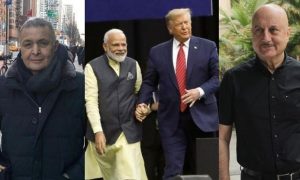





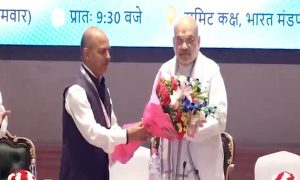

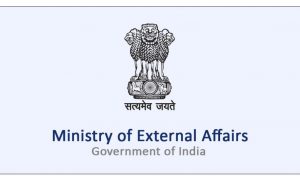



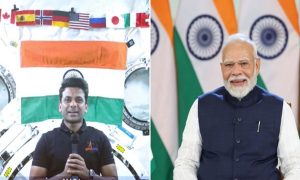



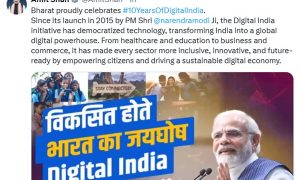

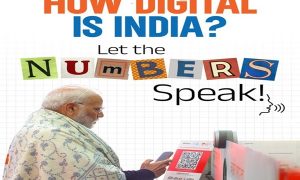





 WhatsApp us
WhatsApp us